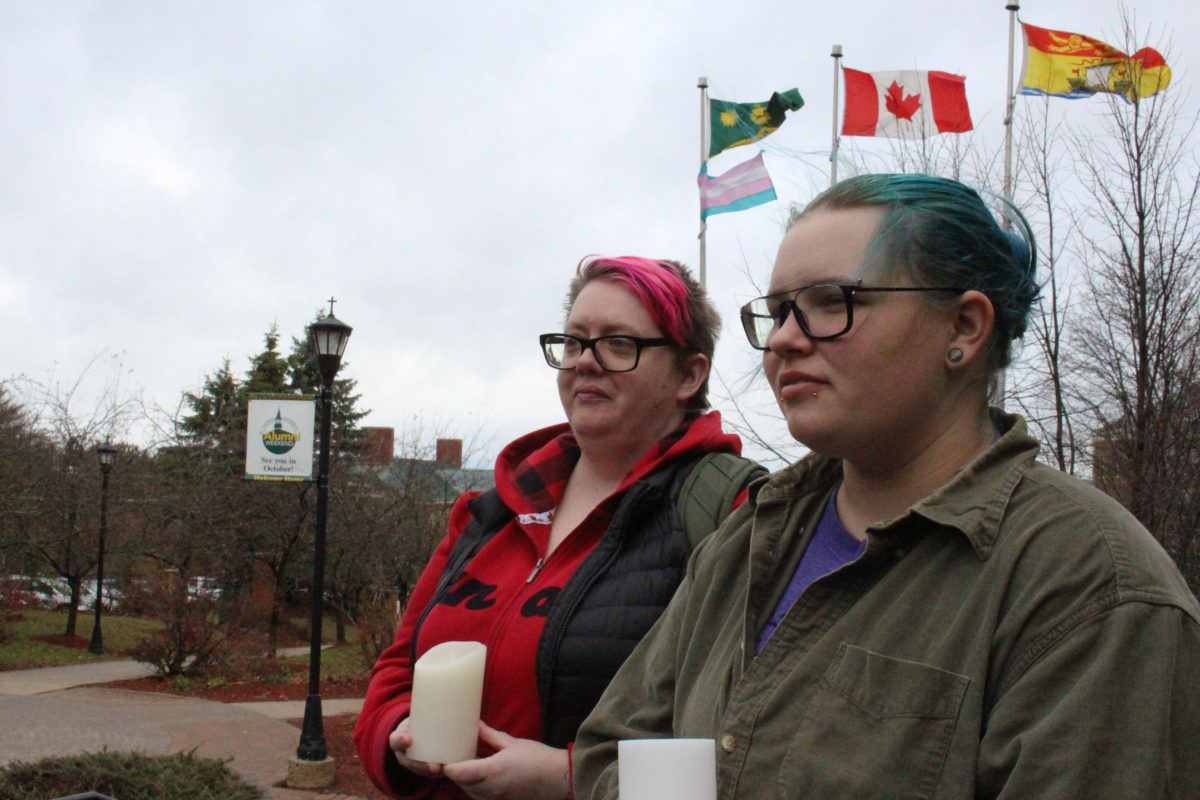

A small table adorned with flameless candles sat in the middle of the off-campus lounge on Thursday, illuminating a canvas painting adorned with the transgender symbol. St. Thomas University students, professors and faculty quietly surrounded black leather chairs draped with lists tallying more than 300 names of slain transgender people across the world.
Approximately 50 community members gathered for the Queer and Allied People’s Society’s third annual Transgender Day of Remembrance Ceremony on Nov. 16 — its biggest gathering yet in a year featuring the largest number of transgender people murdered globally.
Olivier Hébert, sexuality and gender diversity representative for the STU Students’ Union, said events like TDOR may show a sign of things getting better — bittersweetly.
“In a kind of fucked up way, it sort of speaks to the fact that there is actually progress happening because trans people are more visible, which unfortunately that means more of us are getting killed right now,” Hébert said.
“But it also means that there are more people willing to be out and stand up and have their voice heard … The fact that TDOR exists and people want to be a part of what is happening, that says progress.”
- The transition to comfort: student receives top surgery
- Commentary: How is gender neutral housing still not a thing?
As of mid-August, there had been more murders of transgender people across the world in 2017 than all of 2016.
Eli Matheson, co-founder of Q&A, said the list of over 300 people only included one Canadian.
“[It’s] great for us, but I think it’s important to remember it’s still very relevant in Canada, especially being right next to the U.S.,” Matheson said.
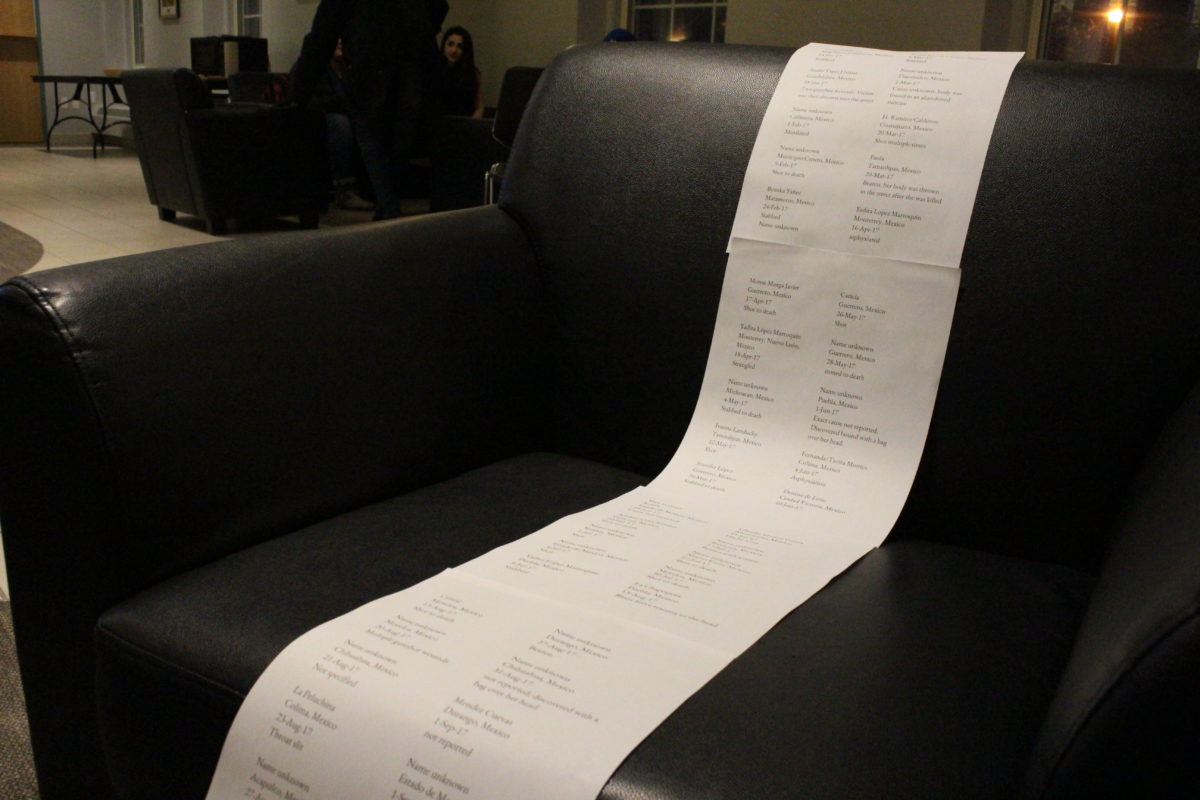
“The U.S. is one of the countries that has the most murdered trans people in the world.”
The Human Rights Campaign, an American LGBTQ advocacy organization, has found there’s been at least 25 transgender people murdered in the United States so far this year. That’s up from last year’s count of 23 and 21 the year before, Matheson said.
In a report relased on Nov. 17, the organization calculated that a total 102 transgender people have been killed in the U.S. over the past five years.
This number is likely incomplete due to lack of reporting to police and misidentification in news reports.
Matheson said all trends point toward increasing violence against the trans community, especially for trans women of colour.
Out of the 102 people murdered in the U.S., reports say 88 were transgender women and nearly all were black or Hispanic.
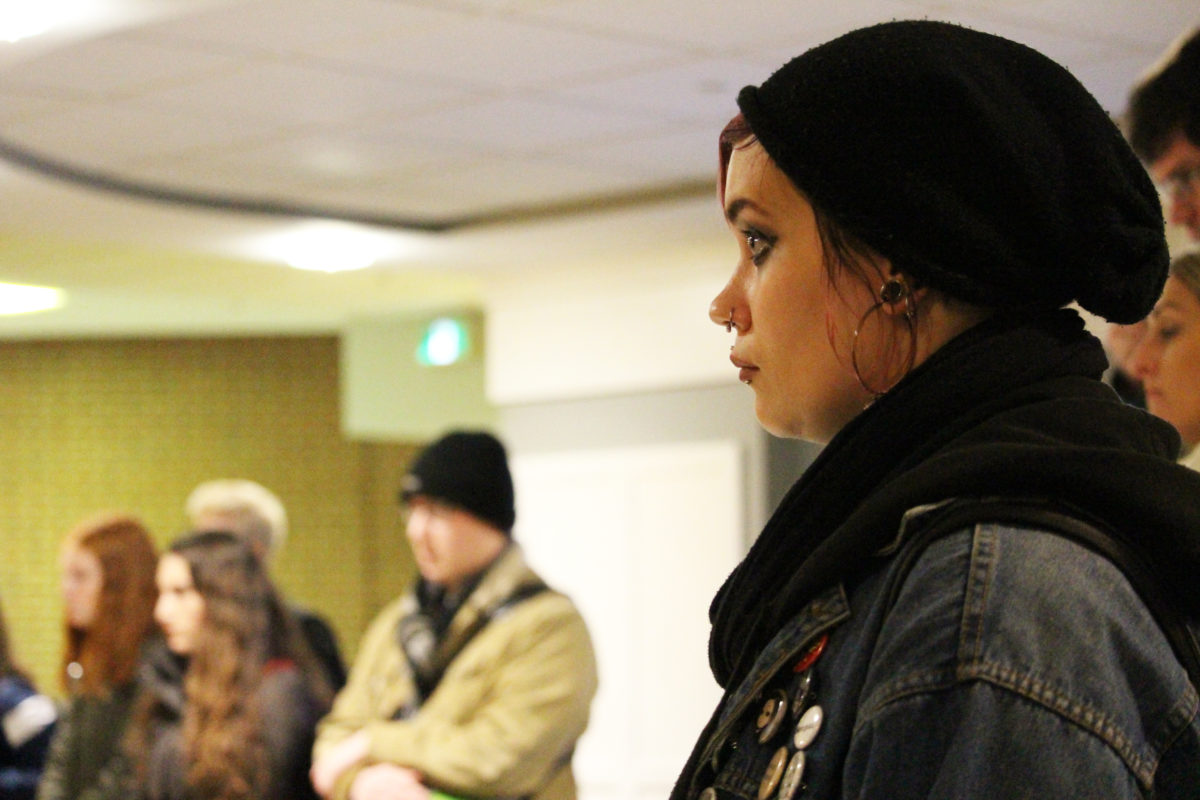

Matheson attributed many of the problems across the border to President Donald Trump’s rise to power.
In July, Trump declared he would not welcome transgender people in the country’s military, attempting to bring back a policy former president Barack Obama had axed.
A federal judge blocked Trump’s provisions to the memorandum at the end of October.
At the same time, 16 U.S. states have attempted to pass “bathroom bills” restricting transgender people from using sex-segregated facilities which match their self-identified gender.
While the majority of legislation has failed, some pending decisions will be carried over into 2018.
“The problem is that even though these things aren’t getting through, it’s still contributing to a culture which reduces people to their biological sex,” Matheson said at the ceremony.
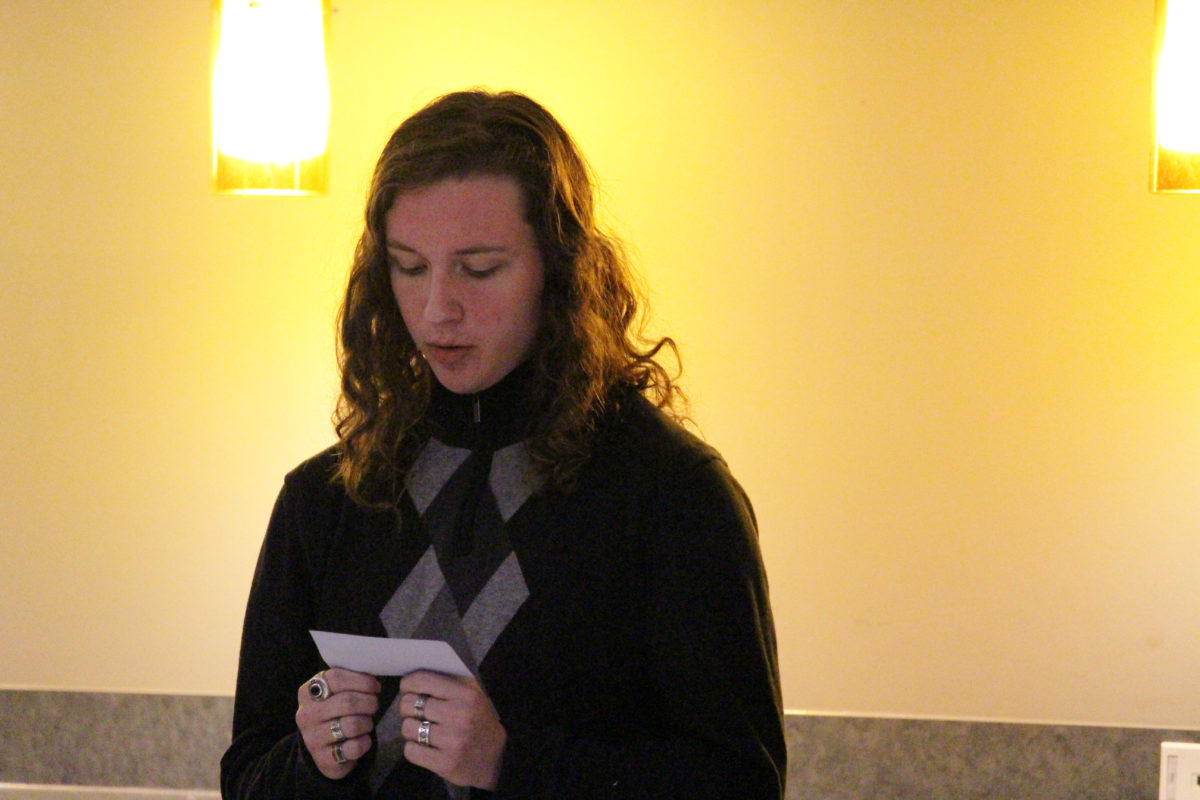

“The media demonizes trans people for wanting to use facilities that match their identity and they try to portray us as tricksters, which sort of contributes to the whole culture which excuses violence against trans people.”
Remembering: Hester and beyond
This is the 19th year Transgender Day of Remembrance is being observed.
It’s officially observed on Nov. 20 and was created following the murder of Rita Hester, a transgender African-American woman murdered in her apartment in 1998 in Allston, Massachusetts.
Various people at STU’s ceremony on Thursday took turns reading the names of victims, telling their fatal stories and remembering them through memories of their loved ones.
Names read included China Gibson of New Orleans, Louisiana; Kendra Marie Adams of Ithaca, New York and Ebony Morgan of Lynchburg, Virginia.
Anthropology professor Brad Voutour spoke of Scout Shultz, a 21-year-old student at the Georgia Institute of Technology. Shultz was shot dead by Tyler Beck, an officer of the Georgia Tech Police Department on Sept. 16.
Voutour, who is gay, said he feels remembering is not just about the act itself, but about awareness.


“The remembrance ceremonies increase visibility, and the more that we have visibility the more that we can step back and say this can save a life,” he told The Aquinian.
“I just think that these kind of events are potentially life saving and critically important for our students here at STU.”
Q&A members read pieces of writing by transgender people, including STU’s own Alexa Fae McDaniel.
McDaniel, an openly transgender woman, could not attend the ceremony but offered insight on the importance of transgender voices.
McDaniel said social exclusion and physical violence are not unique experiences only for transgender women, but they have been most likely victims.
There’s a reason, McDaniel wrote, they are one of the few openly transgender women on campus: safety.
“It isn’t safe for me. Even in as quaint and quiet and liberal a place as Fredericton, and St. Thomas’ campus in particular, it is not safe to be a transgender woman,” McDaniel wrote.
“I and every other transgender woman have been harassed while walking alone at night. I and every other transgender woman have been harassed while walking alone during the day.”
Call to action
Hébert read a list of tips for becoming a better ally to transgender people, urging attendees to “make a difference … and change the story for trans people.”
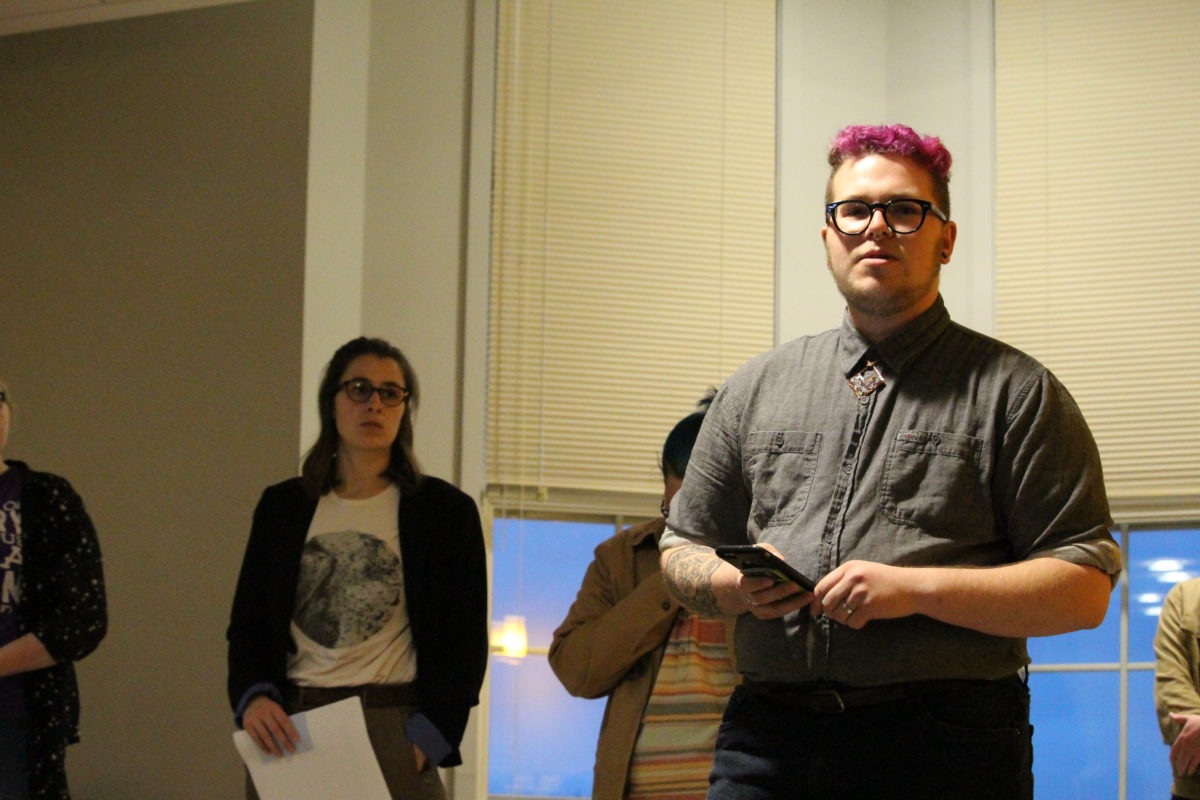

The ideas included simply listening, educating, understanding complex layers of oppression, advocating for legal protection, risking privileges and accepting that they may never know the full story of an individual’s struggle or journey.
A moment of silence was held in remembrance of victims to end the ceremony.
Q&A member Johnny Matheson said coming together to remember and move forward is important as many don’t understand violence against the trans community is a problem.
“You don’t expect it to be happening when it’s not happening right in front of you or to you every single day,” he said.
But Hébert said it’s a real problem even in New Brunswick. A high school student he speaks with has been pulled out of the system due to incessant bullying they’ve dealt with as a young trans woman, he said.
“That’s happening in our province and these are young people who are feeling there is no reason to live, nothing will get better, [thinking], ‘My life will only be constant hatred coming from people wherever I go no matter what time of day.’”
Hannah Zamora of Q&A said even as the struggle alleviates, remembrance ceremonies are still essential.
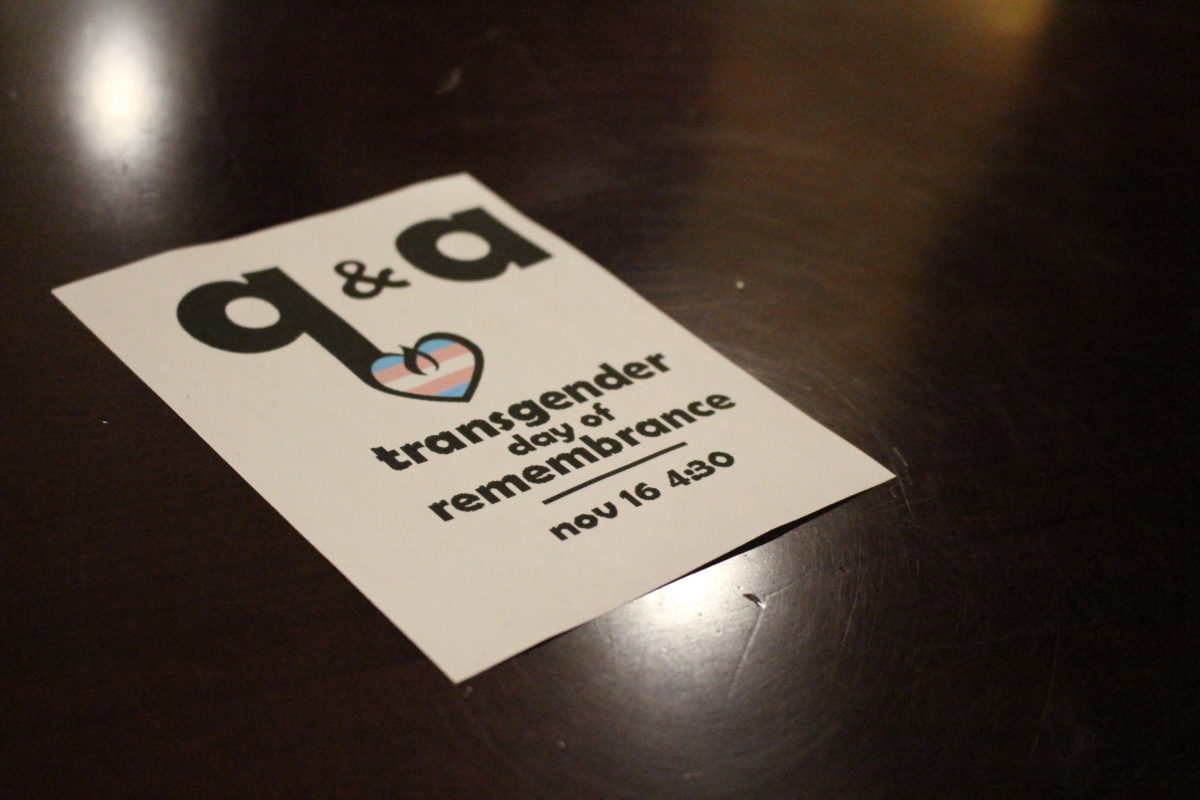

“You need to remember how much work and how much progress is made in order to realize how you got here and what still needs to be done,” Zamora said.
“There needs to be a bit of looking backward in order to look forward.”
Hébert said even as violence increases, the progress that’s being made gives him hope.
“Twenty-five years ago, we would’ve probably instead be receiving hate, and people would be coming to yell at us rather than be in solidarity with us,” he said.
“So many trans people, even in a place like STU, are still struggling.”
